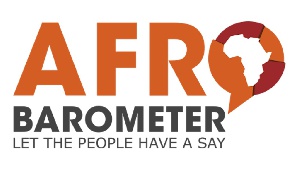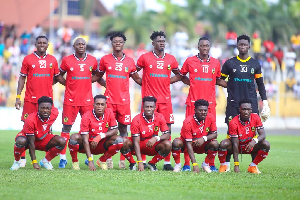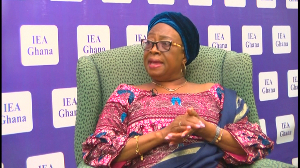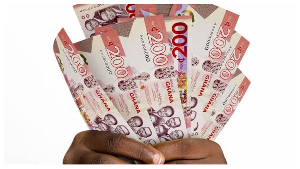Some analysts have questioned the research methodology of the latest Afrobarometer report which concluded that 59 per cent of Ghanaians say the country’s economy is heading in the wrong direction.
The report, released by the Center for Democratic Development (CDD) also showed more than half of the respondents representing 54 per cent believe things will get better in the coming year.
But panellists on TV3 news analysis programme, The Key Points, on Saturday raised concerns about the research.
Development Economist, Dr George Domfeh said some of the questions posed to respondents are not holistic enough, hence the responses received might not exactly reflect the situation on the ground.
“The variable that is saying that 59% of Ghanaians think the economy is heading in the wrong direction; I don’t know the type of questions that they asked. The moment you say that then you’re saying the policies that the government is implementing is leading us to the doom, that is what you are suggesting,” he said.
Also, Dr Domfeh said the number of people who believe the country is headed the wrong way against those who are optimistic things will get better, is contradictory.
“54% of those who said the country was heading towards the wrong direction are also saying that in the next 12 months they’re going to see an improvement in the economy. These two events are mutually exclusive, and so if you ask your questions well, you don’t get 59% of people saying the economy is heading towards the wrong direction, and at the same time, 54% saying that things will get better.
“Something that is leading to the wrong direction, how do you expect it to bring something better? “ he asked.
In his view, “It’s a total contradiction”.
“I’ve always been talking about this thing and I also even have a problem with the 98% confidence level, and an error margin of 2%. That’s what they’ve been using over the years,” Dr Domfeh indicated.
Dean of Graduate Studies of the University of Professional Studies, Dr John Kwaku Mensah, also raised concerns about the sample size used by the researchers.
The 2,400 sample size used by the CDD, he said was the same used in its 2017 report although dynamics have changed and Ghana’s population has seen growth over the past two years.
“I also want to respond to the survey framework, in fact, there are some issues we need to address. If you choose a sample size two years ago and a lot of variables have changed within these two years and you continue to take the same sample size, in academia, we will continue to question it. I even question some of the instruments,” he pointed out.
He, however, admitted things are not exactly going well in the country as is indicated in the report, explaining it is because Ghanaians are not getting as much infrastructural development from the government as they prefer.
“Things are hard like people are saying, and it has always been the case,” he said.
Dr Mensah said road infrastructure is one of the things Ghanaians desire the most.
“All that the farmer wants is that when I harvest my produce, transportation to the distribution channel should be smooth.”
He also noted Ghanaians are now following government policies and asking relevant questions, noting their interest in policies and projects is good for the country’s democracy.
For his part, financial analyst and Chief Operations Officer of Dalex Finance, Joe Jackson aid inasmuch as there may be issues with the methodology used by CDD, one cannot downplay the findings and how Ghanaians feel about the economy.
He said it is important government pays attention to the report and find ways of addressing some of the issues raised in the report.
General News of Sunday, 1 December 2019
Source: 3news.com

















